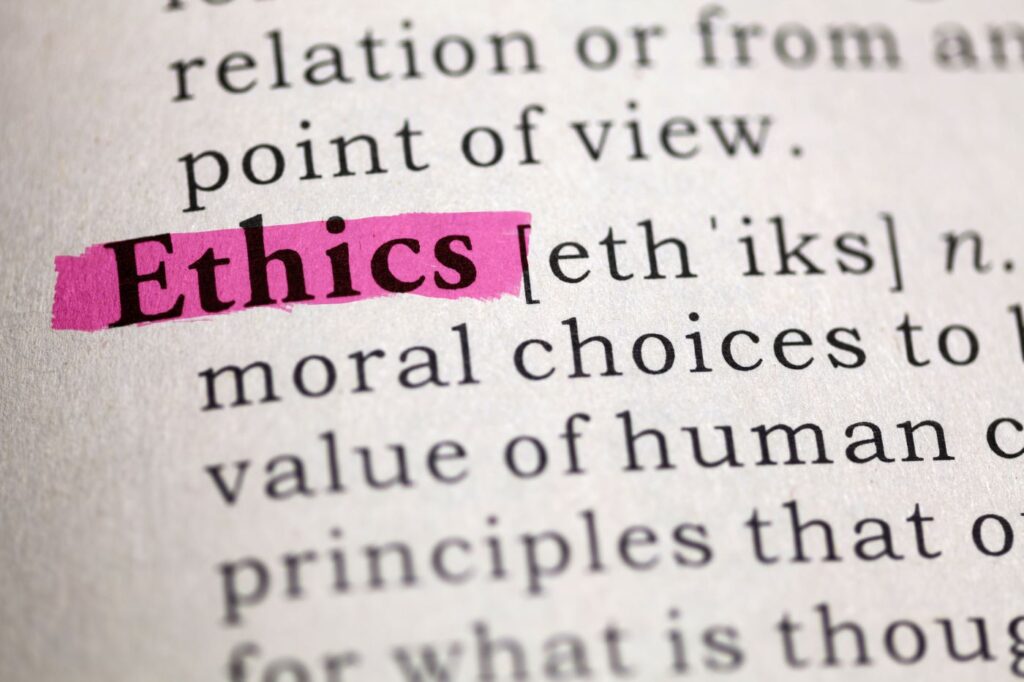Editor’s note: The readers’ questions have been edited for clarity.
In this edition of “Ask Chris Tollefsen,” I’ll address two questions about marriage and a third about contraception.
The first concerns Catholic canon law regarding the proper form a marriage should take for ceremonies involving at least one baptized Catholic:
As I understand it, the Catholic Church regards baptized Catholics who marry outside the Church (without permission from the diocesan bishop) as entering into invalid marriages. How is this squarable with an understanding of natural marriage (as distinct from sacramental marriage) that is entirely reason-based, rooted in natural law, and only defined by being a conjugal union that is exclusive, permanent, and open to children?
Start your day with Public Discourse
Sign up and get our daily essays sent straight to your inbox.In other words, why is it impossible for a baptized Catholic (even one who does not believe in Catholicism, does not currently practice, or even one who was baptized as an infant but was never raised Catholic) to enter into a natural, non-sacramental marriage in the eyes of the Catholic Church without the bishop’s permission? Wouldn’t that mean that every baptized Catholic who marries outside the Church without permission is technically living in a sinful relationship?
A bit of background here is helpful. Since the Council of Trent, the Catholic Church has required that all marriages involving at least one baptized Catholic meet certain requirements of canonical form, lest they be invalid (not really marriage) and not merely illicit (real, but wrongly entered into). At Trent, for example, the Church stipulated the degrees of consanguinity that would impede the contracting of a valid marriage and declared in a subsequent canon: “If anyone says that the Church cannot establish impediments dissolving marriage, or that she has erred in establishing them, let him be anathema.”
So in principle, the Church reserves for itself the right to establish the legal form that must be followed for a valid marriage. One can see the rationale for this: marriage is a legal act, and in the absence of a law determining the form of the ritual, persons might marry in many different ways. Subsequent questions of validity would be extremely hard to adjudicate.
In the 1983 Code of Canon Law, a provision was added indicating that, while the general requirements of canonical form remained for a valid marriage, they did not apply when a baptized but non-practicing Catholic had defected from the Church “by a formal act.” Depending on the interpretation of “by a formal act,” this would have addressed many of the kinds of cases that the question raises. For example, a person who has actively joined a non-Catholic church has arguably defected by a formal act.
In practice, however, there was ambiguity about what was meant; and it seemed problematic to incentivize formal defection from the Church. In addition, there was a desire to render straightforward and relatively easy judgments as to the marital status of those who, while baptized, had married and divorced outside the Church and then returned to the Church. And so Pope Benedict XVI promulgated a new rule in 2009 that removed all reference to a formal act of defection and returned to a simpler rule according to which every baptized Catholic must be married in accordance with the norms of canonical form unless explicitly exempted from them by his or her bishop.
Like the questioner, I have concerns about the wisdom of this change, although I appreciate the motivation. For it does admit the following possibility: suppose a child is baptized but not raised as a Catholic, for example because of the death or defection from the faith of his or her parents. On reaching maturity, that person might have a full understanding of the nature of marriage and thus intend and consent to a lifelong and exclusive union open to children in contracting with a potential spouse. And yet, that person would not be genuinely married according to the Church, and because of the Church’s positive law. That does not seem entirely just to such persons attempting to marry in good faith.
What follows morally from this?
First, I think discussion should continue about what is the best way for canon law to specify the requirements of validity. If there is a way to address the concerns that led to Pope Benedict’s new rule while fairly treating those who are baptized but not self-identifying as Catholic through no fault of their own, it should be sought.
Second, the requirements of canonical form should be made more widely known; I know of self-identifying Catholics who have attempted civil marriage because their spouse was not Catholic, who had no idea that this rendered their marriage invalid.
Third, although those living in non-marital relationships might be thought to be “technically living in a sinful relationship,” it does not follow that they are sinfully so living. In the kinds of cases that bother my questioner (and me), there seems to be no culpability on the part of either party.
Of course, it is true that the relationship will lack the graces of a valid sacramental or even non-sacramental marriage and that the partners will be in serious error about the nature of their relationship. But again, this is different from the question of culpability, and it seems to me reasonable to hope and pray that given a lack of culpability, the couple will be given the grace necessary both to maintain and deepen all that is good in their relationship, and also that they will come to recognize the need for its being validated, and eventually, that the couple will be called back to the Catholic faith.
It seems to me reasonable to hope and pray that given a lack of culpability, the couple will be given the grace necessary both to maintain and deepen all that is good in their relationship.
A second question also concerns marriage and non-marital companionship. A reader writes of his good friendship with a Christian who is in a long-term committed relationship with a partner of the same sex and who also believes that marriage is between a man and a woman. While conceding that the relationship is not marital, the friend has told the questioner that:
My relationship is no different from any of my other friendships in the sense that at its core, it seeks to reflect God’s love for my partner. I love him. I want what’s best for him. I want him to be successful, happy, healthy, and prosperous. I want him to know that I’m by his side, through thick and thin, to challenge him, assure him, and listen to him. In that sense, [my partner] is like any other friend I have. Where my relationship differs from my other friendships is that I’m choosing to pour myself as a whole into this friendship, keeping no part of myself for myself as I do with other friends, but rather giving him all that I am: the good, the bad, and the ugly.
The friend then asks the writer this question:
He goes on to ask if my only objection is the inclusion of sexual activity between him and his partner, or if I’m fundamentally opposed to what he described even if it excluded sexual activity. I didn’t know how to answer. And this is the crux of my question to you: Is his definition of “committed companionship” outside the bounds of Christian ethics if it doesn’t include sexual activity? If not, what is it about what he described that isn’t right or good?
I think there are two points to make here. The first is to acknowledge that the questioner’s friend describes something that is both possible and good: it is possible, that is, for one person to offer the whole of oneself to and for another in a non-marital way, and such self-giving is good. For example, a fireman who risks and loses his life to save another has given his whole self to that other. And something similar could be the case of deeply committed relationships that do not involve actual sacrifice of one’s life, but do involve a pouring out of the self for the good of the other.
Of course, neither the fireman nor the devoted friend has given his whole self in the way unique to marriage, a way that involves the physical union of two human persons as one flesh, thus realizing at the bodily level what has been promised in the wedding vows: a permanent, exclusive, and comprehensive giving of each spouse to the other.
So when the friend describes himself as giving his partner all that he is, I think we can accept this as true, albeit true in a different way from the way in which that would be true of spouses. And we should accept that that form of self-giving in itself is a good, and indeed a great good, in the lives of these persons.
And so the friend is correct to suggest to my questioner that the only way in which such a committed relationship stands outside the bounds of Christian, or natural law, ethics, is if it is, in addition to being a committed and loving relationship, also a sexual relationship (I am here presupposing the truth of Christian and Catholic teaching that sexual activity is permissible only within marriage). I believe that despite errors of explication and presentation, Fiducia Supplicans, with its direction to make available non-marital blessings to individuals in same-sex partnerships, also acknowledges the goodness of such relationships apart from their sexual dimensions.
And so I think the questioner should give an affirmative answer to his friend’s question: the only objection is to the inclusion of sexual activity in his friend’s relationship, and the questioner should affirm the goodness of his friend’s relationship apart from that inclusion. My questioner writes:
I’m struggling in how I should proceed with our friendship because I don’t want to tacitly affirm mortal sin, but I also don’t want to lose a friend who has arguably reflected more of Christ and His love to me than all of my straight friends.
My response is that his friend has demonstrated a remarkable capacity for open and serious communication and reflection as well as a great commitment to maintaining the friendship; all this should also be affirmed as a great good, and my questioner should give thanks for having such a friend. He should continue both to pray for his friend, and to affirm him in all the ways that he genuinely can.
The final question for today:
There are some conditions in a woman’s body that could impede the implantation of a fertilized embryo “naturally.” The hormonal state created by breastfeeding, for example, makes the uterine lining thinner and thus less likely for an embryo to implant. Endometriosis is an example of a disease that makes the uterine lining inhospitable for an embryo to implant.
I have heard examples like these used as a defense for why hormonal birth control is morally acceptable since it essentially creates similar conditions as we see occur in nature. Is mimicking nature with medicine the same as “nature” doing it itself?
This question is helpful for getting an accurate understanding both of what contraception is and why it is morally wrong.
As to the first: one contracepts when, and only when, one anticipates that conception is possible and one takes some step to make sure that the possible conception is prevented. So intercourse during an infertile period that is a result of breastfeeding or some health condition or the periodic infertility of a menstrual cycle is not an instance of contraception: nothing has been done to prevent a possible conception from taking place.
This definition helps us to clear up an ethical mistake to which the question alludes indirectly. The Catholic, and natural law, objection to contraception does not depend upon the relationship between what is natural and what is artificial. For, as the question suggests, it is often permissible to do by artifice what is done by nature. The impermissibility of contraception is determined neither by its being “like” some natural process nor by its being “opposed to” some natural process.
Rather, the objection depends entirely on the relationship of the act of contracepting, as described above, to two goods. First, the good of human life: deliberately preventing a possible life from coming to be puts one in unreasonable opposition to that good. And second, the good of marriage which, as the previous question indicated, requires complete self-giving in all the dimensions of one’s personal life and realizes that self-giving physically in marital intercourse only if that intercourse is itself as full an instance of self-gift as it is, at the time, able to be. But to prevent marital intercourse from coming to its fullest possible fruition—the conception of a new person—on some occasion is to prevent that intercourse from being as full an instance of self-gift as it could be. So contraception within marriage is unreasonable in relation to that human good.
All three questions raise many more issues than I’ve been able to address, and I thank my writers for their rich and thought-provoking submissions.
Submit your own ethical questions to Chris or read his previously published ethics advice columns here, here, and here.












